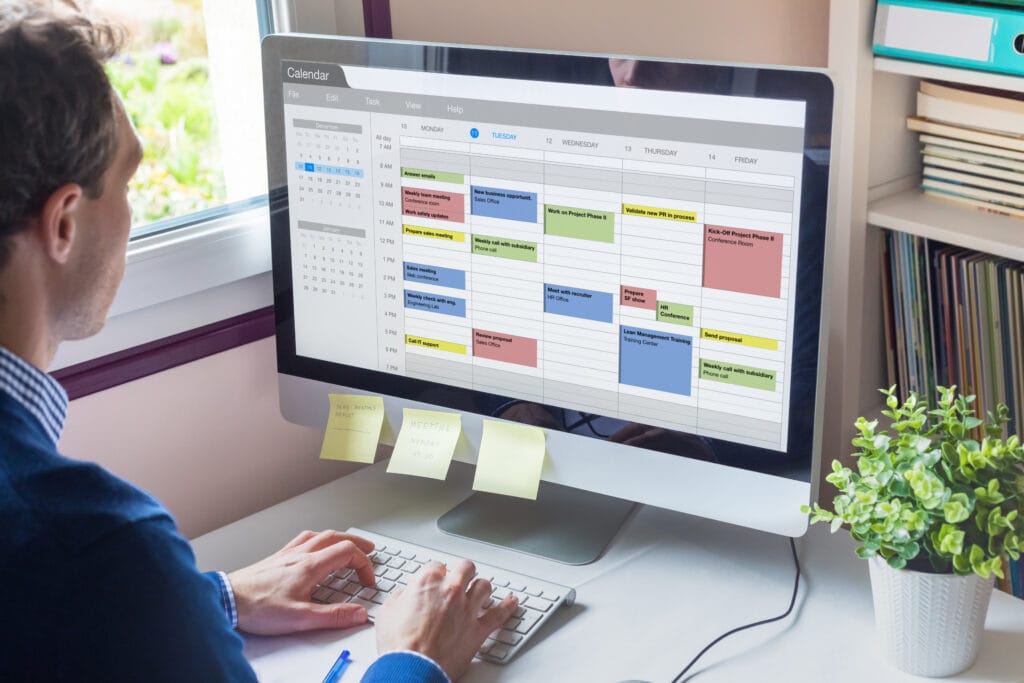Last updated on September 26th, 2024 at 03:50 pm
This article is from the Ask Sabri Column, where dental clients and readers can ask questions to our Deputy COO, Sabri Blumberg, about their dental practice. In this issue, Sabri gives her advice regarding the price shopper and how you can turn them into new patients. Have your own question? Submit your question to sabrib@mgeonline.com
 Q: Any advice on “price shopper” type new patient phone calls? How should we handle it when a prospective patient calls and asks for prices?
Q: Any advice on “price shopper” type new patient phone calls? How should we handle it when a prospective patient calls and asks for prices?
This is a great question, which I hear quite a bit. And when I’m asked, before I get into the do’s and don’ts, I usually ask how that doctor/OM, etc, has these calls handled now.
The answers I get are all over the spectrum. And in most cases the patient is “shut down” early, and the call doesn’t turn out well – i.e. does not become a new patient. They usually range anywhere from:
- Having their receptionist tell the patient “we don’t quote prices over the phone,” which 99% of the time results in the patient ending the call…and a lost opportunity
- Telling the patient the same as above and inviting them in for an exam, which again usually results in a lost opportunity
- Just give the patient the price without much else…which again unless it’s the low price they wanted to hear – results in a lost opportunity!
Oh, and by the way, we have a couple of FREE e-books that can really help with this subject. They’re the Improving Customer Service and 6 Internal Changes That Can Double Your New Patients e-books and they’re packed with useful information. Click here to download them for free.
Don’t have attitude with “shoppers”
Another troubling aspect of this that I’ll get is the attitude. I don’t always hear this, but when I do it bothers me. Specifically, that someone calling in for a price “cares more about money than  their teeth,” or is a “bad” patient in some way. To begin, you’d have to be a fool to think that someone can’t pick up on this attitude. Think about it – if someone has a negative attitude towards you in one way or another, it comes through. So, if your receptionist immediately adopts an attitude the second he or she hears a “shopper” question, you can more or less kiss that potential patient goodbye. It’s also a basic violation of the general nature of the receptionist post. I mean, the concept of “receiving” is in the very definition of the word Reception; they should be friendly and welcoming. Not blowing people off!
their teeth,” or is a “bad” patient in some way. To begin, you’d have to be a fool to think that someone can’t pick up on this attitude. Think about it – if someone has a negative attitude towards you in one way or another, it comes through. So, if your receptionist immediately adopts an attitude the second he or she hears a “shopper” question, you can more or less kiss that potential patient goodbye. It’s also a basic violation of the general nature of the receptionist post. I mean, the concept of “receiving” is in the very definition of the word Reception; they should be friendly and welcoming. Not blowing people off!
Secondly, people “shop” for things these days. Not everyone – but a lot do. Especially with the amount of information readily available online. Theoretically any patient could find the UCR fee based on a dental code online in a matter of minutes! And if this really bothers you…(and I mean this in the nicest way possible for your own well-being), you’re going to have to get over it!
Here’s the bottom line about price shoppers
When handled correctly, “price shopper” calls can be an incredible opportunity to build your patient base. So, let’s look at how to do this!
Here at MGE, we have a great relationship with Viva Concepts. Viva is a dental marketing company and their reception (phone) and hygiene retention materials are in my opinion the best in the industry. For that matter, Dr. Hughes from Viva is a guest speaker at MGE on these subjects at two of our seminars (the Graduate Sales Team Seminar and the Impossibly Successful Hygiene Department Seminar). With that in mind, I’m going to quote from their material in my answer.
Now, I do understand the pickle it puts you in when a caller asks for a price. You’ve never met this person before, they can’t be diagnosed over the phone and even if you had met them and knew what their problem is, the receptionist can’t diagnose them – only the doctor can.
 So, the first thing you need in order to handle incoming new patient calls – especially shoppers – is a person answering the phone who can communicate well. And I mean communicate – not just talk but also listen effectively. If you don’t have this, nothing’s going to work. They should be warm, friendly and welcoming, along with being able to give and receive communication.
So, the first thing you need in order to handle incoming new patient calls – especially shoppers – is a person answering the phone who can communicate well. And I mean communicate – not just talk but also listen effectively. If you don’t have this, nothing’s going to work. They should be warm, friendly and welcoming, along with being able to give and receive communication.
The second thing is that the receptionist (or whoever handles these phone calls) must have a thorough understanding of the procedures the patient is asking about and the office’s price structure. It’s important to train this team member well so they know how to explain things properly and answer any questions.
(Related: New Patients: How NOT to Ruin Their First Impression)
And a few other things you will want to keep in mind:
1. We already know something about price shoppers
KEY POINT: If someone’s calling for a price, we know something about them already. We know that they’ve already seen a dentist who told them they need a crown, implant, etc. We also know that they probably need multiple crowns, implants, etc, because they’re probably not going to leave their current dentist for one crown or one implant that’s $200 cheaper.
This isn’t always the case, but in a lot of cases when a person is calling asking how much you charge for a crown, they don’t need just one crown.
2. We want to get this price shopper into the dental office and in front of the dentist
 We can do little to nothing on the phone. The objective is to get the person in front of the doctor – then we can get a proper diagnosis, and hopefully an accepted treatment plan and a new long-term patient!
We can do little to nothing on the phone. The objective is to get the person in front of the doctor – then we can get a proper diagnosis, and hopefully an accepted treatment plan and a new long-term patient!
And again, some people have the fixed idea that price shoppers are bad, but the truth is we all do it. So, there’s nothing wrong with somebody who does that.
When the call comes in, the first thing the receptionist is going to want to do (after getting their contact info) is say,
“No problem, and I can go over the prices with you. First, is it okay if I ask you a few questions first?” Chances are MOST people will say yes.
A key point here: Statistically speaking, the longer the receptionist spends on the phone with the patient, the higher the chance they will schedule an appointment.
The receptionist would then ask questions various questions relating to the issue, such as, “Is the tooth on the top or bottom of your mouth?” “Front or back?” “Is it sensitive to hot or cold?” It’s easy to figure out what you’d want asked, and I leave it to you to work this out for your office. The idea is to be interested in and establish what problem the patient is trying to solve and what is going on. Ultimately, you’re asking these questions so as to can get into communication with that person.
3. Give them some basic knowledge of how the procedure works and why the price can vary.
I recommend saying something like, “Our prices are similar to other dental offices in the area, but if you’re just getting prices over the phone from other office, it can be misleading. An office can quote you a price over the phone, but then once you go into the office it can be much higher or lower depending on a few different factors. Let me explain why…”
Then once you’ve explained this, give them a price range for that procedure – i.e. from ____ to ____. The receptionist might say something like, “Our crowns range from $___to $___ depending on what’s needed.” And that can be a price anywhere from a basic, simple crown to a crown with a build-up. And the receptionist can say, “I don’t want to tell you what you need, so we really should get you in so the doctor can take a look.”
Now, use this well-established communication to bring the patient in for a free consultation with the doctor. The receptionist might say something along the lines of: “So, what we do normally in these cases is have the doctor take a look at you and give you the correct price for what you need; the visit is will be free of charge.”
It is absolutely worth doing a free consultation with these patients. You already know that they need dental work. If your case presentation skills and retention are good, then a high percentage of them will become long-term patients in your practice. There is an art to case presentation and retention, so I encourage you to come to one of our seminars or give us a call today at (800) 640-1140 for a free practice analysis with an MGE consultant to find out how you can improve in these areas.
Last, but not least, don’t be afraid to lose these patients
In some cases, are you going to lose those people? Yes. But in a lot of cases, if you build a decent rapport with them on the phone by asking questions, they’ll schedule because a lot of offices don’t do that. In fact, once you start communicating and asking question, oftentimes the caller will forget to ask about the price again and just schedule for their free consultation!
When you’re doing a good job with this, at least 80% of inquiring phone calls should be converted into new patient appointments. If your percentage is lower than that, then it’s time for some training.
There is a lot more information taught on this topic at our MGE New Patient Workshop – I highly suggest you attend.



No Comments
Be the first to start a conversation